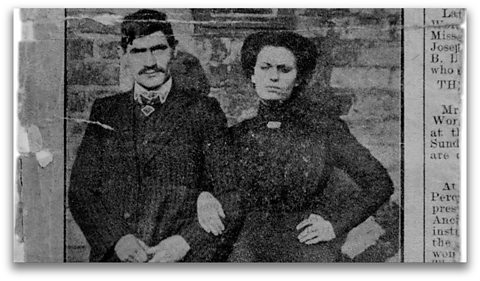David:Between the fifteen hundreds and the nineteen hundreds, Britain experienced successive waves of migration, both in and out of the country. But why did these mass movements of people take place? What was the experience of the migrants? And how did their comings and goings affect this country and its people?
David:Archaeologists are unearthing thousands of skeletons as part of the excavations to build a new railway line right across London.
David:This woman lived around 350 years ago.Now we donβt know very much about her, or about the 3,000 other people whose remains were found alongside hers.But archaeologists here at the museum of London archaeology might soon know if she was one of the hundreds of black people who were living in London at that time.
David:Evidence shows an African presence here as far back as Roman times, thatβs 2,000 years ago. But why did they come here, and what were they doing?
David:Iβve come to the National Archives in Kew, to meet an historian whose researched the lives of 200 black people all of whom lived here in Britain in the 1500s.
Miranda Kaufmann:This image is part of a 60 foot long roll depicting this prestigious event, the Westminster Tournament of 1511 which Henry VIII put on to celebrate the birth of his son.Here we have the face of John Blanke, an African trumpeter, and you can see the royal standard hanging from the trumpet that heβs playing and the trumpeters were really important at tournament, you can imagine they have to herald the arrival of every new jouster on to the field.Sometimes if you were an ambassador, you would travel around Europe with a trumpeter to announce your important arrival.We have records of him being paid wages. We have a petition from John Blanke asking for a pay rise.
David:So heβs writing to the king asking, saying I want more money.
Miranda:Thatβs right. He says his wage now is βnot sufficient to maintain and keep him to do your grace like serviceβ.
David:And does Henry sign it?
Miranda:Yes, right here you can see this faint signature.
David:So this is a professional musician, heβs in the courts of the King. Many of the black people living in Britain who migrated here would have been in a much lowlier status. Is that right?
Miranda:Yes. Most of the individuals we have records for are in domestic service.
David:But not all of them.
Miranda:In London we find Africans working for a seamstress, for a beer brewer. We know that there was a needle maker in Cheapside in the 1540s. We also know of a silk weaver in Southwark in the 1590s called Reasonable Blackman.Both of those individuals were within the cloth trade, which was the main trade in England at that time.
David:And how many do we know of in Britain in the 1500s?
Miranda:Well Iβve found over 200 in the 1500s in this country in Parish registers, in tax returns, in documents like these, in letters, in diaries, in court records and I think there are probably many more still to be discovered.
David:From the 700s, the Moors of north Africa created an empire by taking over the kingdoms in the lands now known as Spain and Portugal. 300 years later, the Spanish and the Portuguese began reclaiming these settlements. The last re-conquest was in 1492.By 1502 Spanish and Portuguese ships were transporting enslaved Africans from the Iberian Peninsular and newly created basis on the north and west African coasts across the Atlantic to south America. English βprivateersβ intercepted those cargos bringing them to England.Other Africans arrived here through various routes, some employed in the households of royalty and merchants from Southern Europe, others journeying from North and West Africa.
David:Tell me about this document and what it tells us.
Miranda:This is another African. In this document, Jack Francis is giving testimony in a court case, in the High Court of Admiralty. His master, a Venetian merchant called Piero Paulo Corsi has been accused of theft and theyβre accusing Corsi of stealing tin from a ship called the St. Mary and St. Edward.
David:Whatβs the significance of the fact that Jack Francis is clearly giving evidence in court?
Miranda:Not everybody was able to give testimony in a court of law. In England we still have serfs or villeins who were a medieval feudal hangover. If you were the Lord of the Manor, a landowner, that land would come with workers who were tied to the land or tied to you personally as the Lord. And they gave their labour without payment, and they were not allowed to testify in the courts of law because they were not free. So this African man was able to testify where various English people would not.
David:So the evidence in the archive suggests there were around 200 people of African descent, living in Britain in the 1500s. Now, as a proportion of the population, they were very few, but the evidence suggests they were generally living normal lives and were being for the most part, acceptedβ¦Now when the archaeologists here begin to examine their treasure trove of new human remains they might find that some of them are black Tudors. Historians have a lot of work still to do on this period.
Video summary
A short film for secondary schools, presented by David Olusoga, which explores the lives of some of the hundreds of black migrants who were in England during the Tudor period.
Olusoga visits The National Archives in Kew, where he meets Dr. Miranda Kaufmann.
They discuss John Blanke, a trumpeter in the court of Henry VIII, who was so well established that he actually submitted a request for a pay rise, and a diver, Jacques Francis, who gave evidence in a court case.
Dr. Kaufmann concludes that some black people in England were accorded greater privileges than many white English people at the time.
This short film is from the ΒιΆΉΤΌΕΔ series, Migration.
Teacher Notes
Key Stage 3:
Start by showing students an image of John Blanke with his fellow trumpeters and discuss what we can tell about him from this picture.
This short film could be used to ensure students understand that there were free black people living here before the Transatlantic trade in enslaved Africans.
Within a study of life in Tudor England, it could be used to show the presence and likely status of black people.
It could also help students understand how we know about ordinary lives in the past, and the power of contemporary documents.
It offers an interesting take on the story of Henry VIII and Katherine of Aragon as the Westminster Tournament Rolls were created to record celebrations at the birth of their son who later died in infancy.
Key Stage 4:
This short film could be used to introduce lessons on Africans in Tudor England.
Students could discuss how historians and archaeologists discover the presence of migrants in that period from parish and court records, tax returns, human remains, etc.
Before seeing the film, students could examine the documents about Blanke and Francis and discuss what they tell us, then see what Dr Kaufmann concludes.
The conclusion that black people were accepted could prompt comparison with other migrant groups at the time.
Students could look at other contemporary documents to consider what they suggest about attitudes to black people.
The film mentions the reconquest of Spain from the Moors and attacks by English privateers on Spanish and Portuguese slave ships: how might these have been causes of migration?
This short film is suitable for teaching history at KS3 and KS4/GCSE in England, Wales and Northern Ireland and Fourth Level and National 4 and 5 in Scotland.
The story of the Palatines who migrated to Britain in the 1700s. video
The story of the Palatine migrants in the 18th century, who were housed in whatβs believed to be the worldβs first refugee camp.
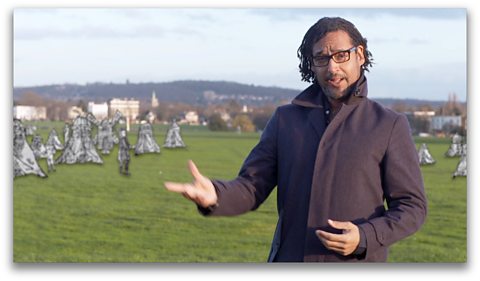
Black people in Britain during the Atlantic slave trade era. video
An exploration of the lives of Black migrants in Britain during the Atlantic slave trade.
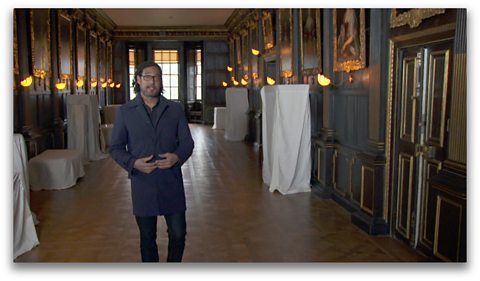
The story of British indentured workers emigrating to America. video
A look at the British indentured labourers sent to work in the new colonies of the United States between 1610 and 1776.
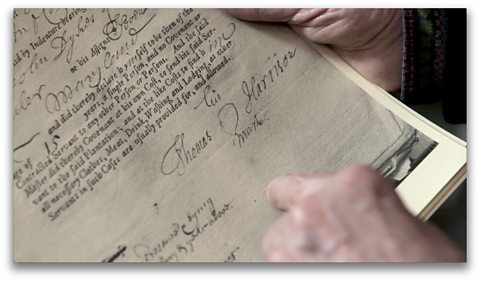
How British migrants made fortunes working for the East India Company. video
The story of wealth accumulated by British migrants working with the East India Company, which they used to climb the social ladder.
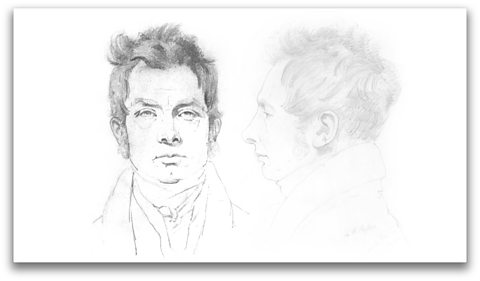
The Irish migrants who moved to Liverpool during the Industrial Revolution. video
Why thousands of Irish migrants came to Liverpool during the Industrial Revolution.
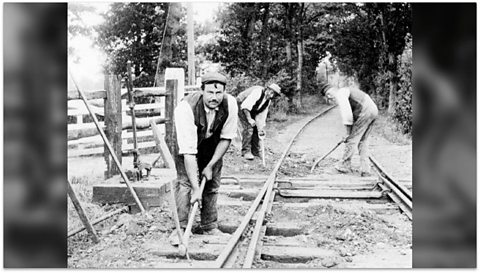
Jewish migration to Manchester in the late 1800s. video
A look at the impact of Jewish migration in the late 1800s on Britain and on immigration law.
